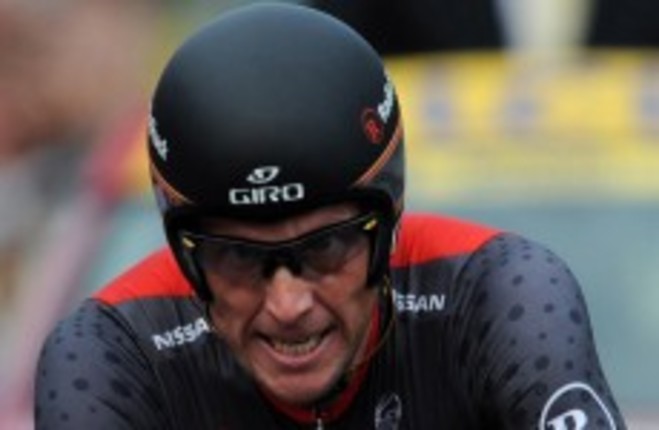ONE OF THE more memorable quotes from Lance Armstrong’s recent interview with Oprah was his admittance that at the peak of his power, he would do “basically anything” in order to win.
This attitude may seem incredibly cold-hearted to the casual observer, however seasoned sports fans will certainly recognise the assertion.
While Lance Armstrong is now being vilified for relentlessly abiding by this morally dubious philosophy for so long, others are often practically praised for adopting such an attitude.
Sport began life as an idealistic concept based on nobility and fair play, and for a while, this laudable spirit was largely upheld. However, as sport’s popularity increased, advertisers and money became involved, and with the stakes increasingly high and the potential rewards greater than ever, cynicism and cheating became more prominent.
Granted, there’s always been competitors who have failed to play by the regulations, but flawed athletes have become ubiquitous in recent times. Whereas before, on the other hand, a fair-play ethos invariably prevailed and rule breakers were the exception rather than the norm.
The most obvious example, of course, is soccer, given that far more money is pumped into the game, in comparison with other sports.
While it’d be difficult to come across a soccer player who has acted in as disreputable a fashion as Armstrong, there is certainly a great deal of cheating or ‘gamesmanship’ throughout the sport.
Moreover, such behaviour is increasingly being regarded as part and parcel of the game, and anyone who objects to the status quo is merely dismissed for being old-fashioned.
There are now even players, such as Theo Walcott, Luis Suarez and Michael Owen, who admit to cheating, as this unsavoury phenomenon becomes normalised.
Meanwhile, pundits such as Gary Neville essentially endorse diving, speaking approvingly of players “winning” penalties, while criticising others for not going down when such an opportunity arises.
The justification for such questionable behaviour is the same reasoning given by Armstrong – the unequivocal desire to win at all costs. And this attitude has become so widespread that it seems only a minority are now willing to fight against it.
Furthermore, soccer is not the only sport where cheating has effectively been institutionalised at times.It has plainly been evident on occasion in rugby too – and is perhaps one of the downsides of the sport becoming professional in the 90s.
One of the most famous examples was during the famous Bloodgate game between Leinster and Harlequins, in which the latter side covertly organised a faked blood injury in order to facilitate a tactical substitution. The fact that many of the team and coaching staff presumably knew about its occurrence and were willing to turn a blind eye constitutes a special level of corruption.
Similarly, in tennis, following a long and prestigious career, Andre Agassi ultimately admitted he took drugs such as speed during his time as a pro and then lied about it to authorities, with strong suspicions subsequently emerging that high-profile tennis officials consciously ignored or helped cover up this behaviour.
Athletics has had its fair share of cheats too, as has swimming and practically every sport where it’s possible to gain a considerable advantage by using performance-enhancing drugs.
Though each of the aforementioned examples all have several differences to the Armstrong case, the general themes – dishonesty, ruthlessness, arrogance – are commonplace in all these stories.
Even this week, with uncanny timing, revelations about an American football player’s ostensible lies reiterated the prominence of this depressing and never-ending narrative of deceit.
So given that cheats always seem to prosper in sport, one might legitimately ask why bother following it in the first place, if it’s ridden with shysters who aren’t worth the price of an admission ticket.Thankfully though, there are certain individuals that always rise above the increasingly tawdry mannerisms that permeate proceedings.
Earlier this season for instance, Miroslave Klose scored a goal with the aid of his hand and ended up admitting it to the referee.
In addition, during a cross-country race last December, Abel Mutai, who was winning by some distance, accidentally pulled up ten metres short of the finishing line. Instead of taking advantage of this error, Fernández Anaya, the runner who was coming second, caught up with Mutai and implored him to properly cross the finishing line.
It is incidents such as the two mentioned above that redeem sport and are so powerful as to excuse a million Bloodgates. Other exceptional athletes, including Katie Taylor, Lionel Messi and Rory McIlroy have consistently proven that sport is not the sole preserve of cold-hearted cowards such as Lance Armstrong.
Therefore, as long as sport keeps producing athletes with dignity in abundance and stars who aren’t necessarily willing to do “basically anything” in order to win, it will continue to be watched by the idealists among us.

